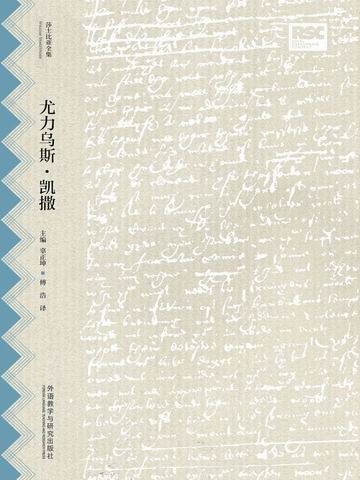英雄,抑或暴君?阴谋总以人民的名义……
Sir Francis Walsingham, Queen Elizabeth’s Secretary of State, recommended the study of history with an eye to its contemporary applications: ‘in the reading of histories as you have principally to mark how matters have passed in government in those days, so have you to apply them to these our times and states and see how they may be made serviceable to our age’. It was in this spirit that Sir Thomas North produced his translation of Plutarch’s Lives of the Most Noble Grecians and Romanes, the main source for Shakespeare’s dramatizations of the events leading to the deaths of Julius Caesar, Brutus and Cassius, Marcus Antonius and his beloved Cleopatra, and Caius Martius Coriolanus. Julius Caesar, performed at the Globe theatre in 1599, was the first of the three plays in which Shakespeare followed Plutarch closely in exploring key moments of transition in the history of Rome.
《尤力乌斯·凯撒》讲述公元前44年一众罗马元老密谋并成功刺杀独裁官凯撒,以及密谋者在菲利皮覆灭的经过。
Shakespeare may have written The Tragedy of Julius Caesar as the first of his plays to be performed at the Globe, in 1599. For it, he turned to a key event in Roman history: Caesar’s death at the hands of friends and fellow politicians. Renaissance writers disagreed over the assassination, seeing Brutus, a leading conspirator, as either hero or villain. Shakespeare’s play keeps this debate alive.
- 出版说明
- 莎士比亚诗体重译集序
- 《尤力乌斯·凯撒》导言
- Introduction to The Tragedy of Julius Caesar
- Introuduce
- Act 1
- Act 2
- Act 3
- Act 4
- Act 5
- USER'S GUIDE
- 人物简介
- 第一幕
- 第二幕
- 第三幕
- 第四幕
- 第五幕
- 译后记
- 版权页
- 书评 写书评
- 笔记
-
书评加载中...













 京公网安备 11010802032529号
京公网安备 11010802032529号
笔记加载中...